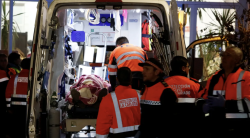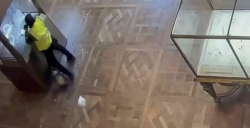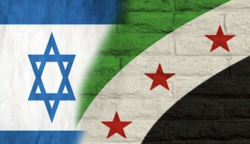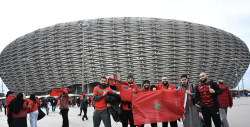Turkish mothers’ protest group faces trial
- 2021-03-25 16:42:00


 Pierre Rayer: Art, Science, and Happiness: The Universal Mission of Transmission to Future Generations through Patronage at the Louvre Abu Dhabi
Pierre Rayer: Art, Science, and Happiness: The Universal Mission of Transmission to Future Generations through Patronage at the Louvre Abu Dhabi Ahly crowned Super champions after dramatic extra-time win over Modern Future FC
Ahly crowned Super champions after dramatic extra-time win over Modern Future FC Yemeni Honey..A Development Wealth Threatened By Conflict And Climate Change
Yemeni Honey..A Development Wealth Threatened By Conflict And Climate Change California wildfires: Millions warned of possible power cut
California wildfires: Millions warned of possible power cut Central African rebels launch attacks near capital
Central African rebels launch attacks near capital Spain train crash: High-speed collision kills at least 39
Spain train crash: High-speed collision kills at least 39 Gold Price Forecast: XAU/USD surges to all-time high above $4,650 amid Greenland tariff threats
Gold Price Forecast: XAU/USD surges to all-time high above $4,650 amid Greenland tariff threats Footage of the Louvre Heist Revealed: Shocking 4 Minutes
Footage of the Louvre Heist Revealed: Shocking 4 Minutes Israeli Daily Details Emerging Understandings with Syria
Israeli Daily Details Emerging Understandings with Syria Morocco vs Senegal: Fans Speak Ahead of AFCON 2025 Final
Morocco vs Senegal: Fans Speak Ahead of AFCON 2025 Final
